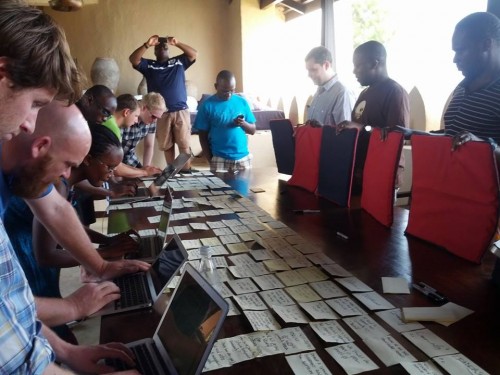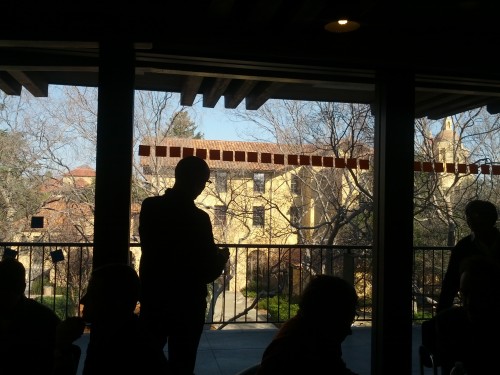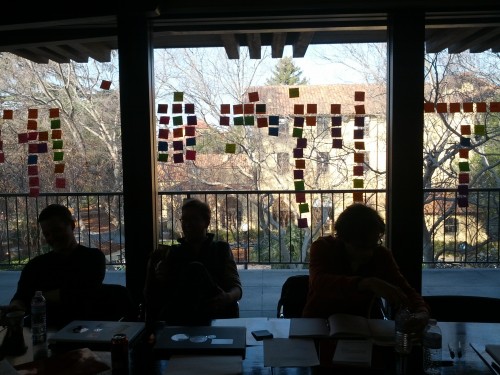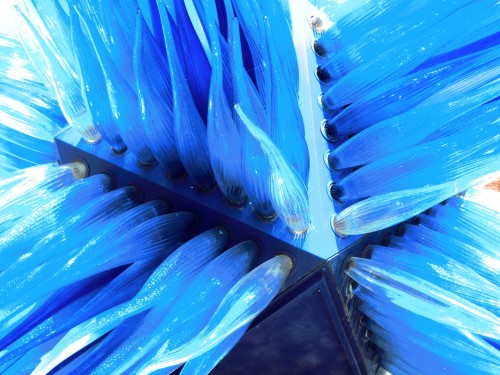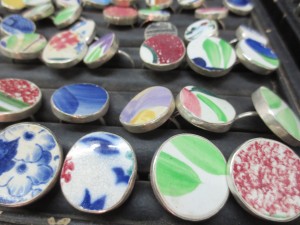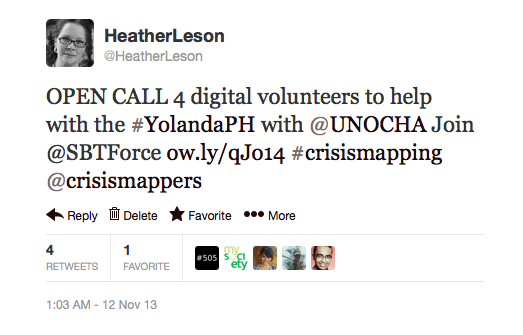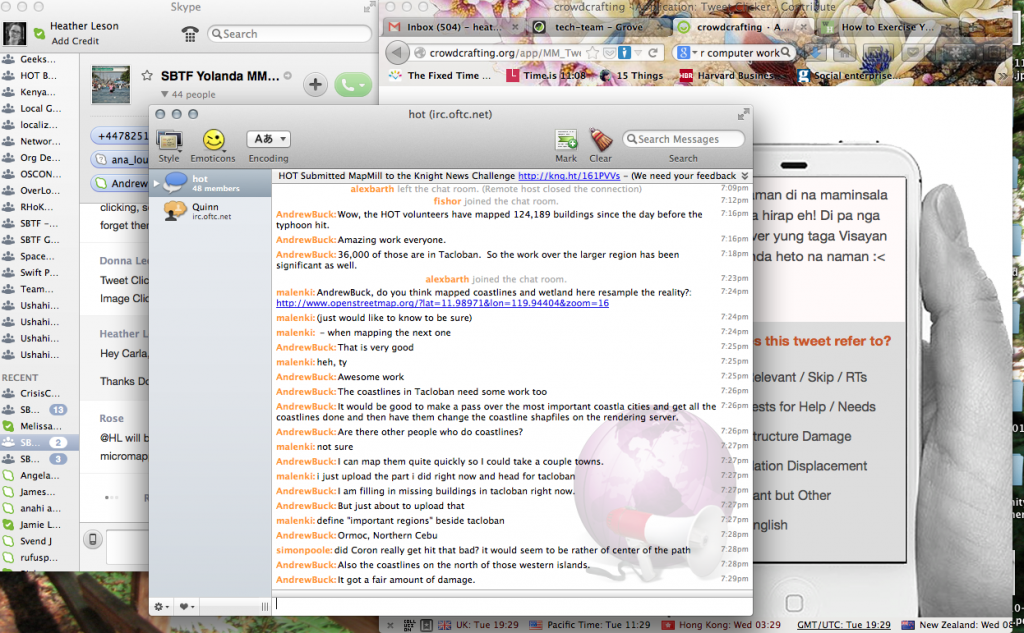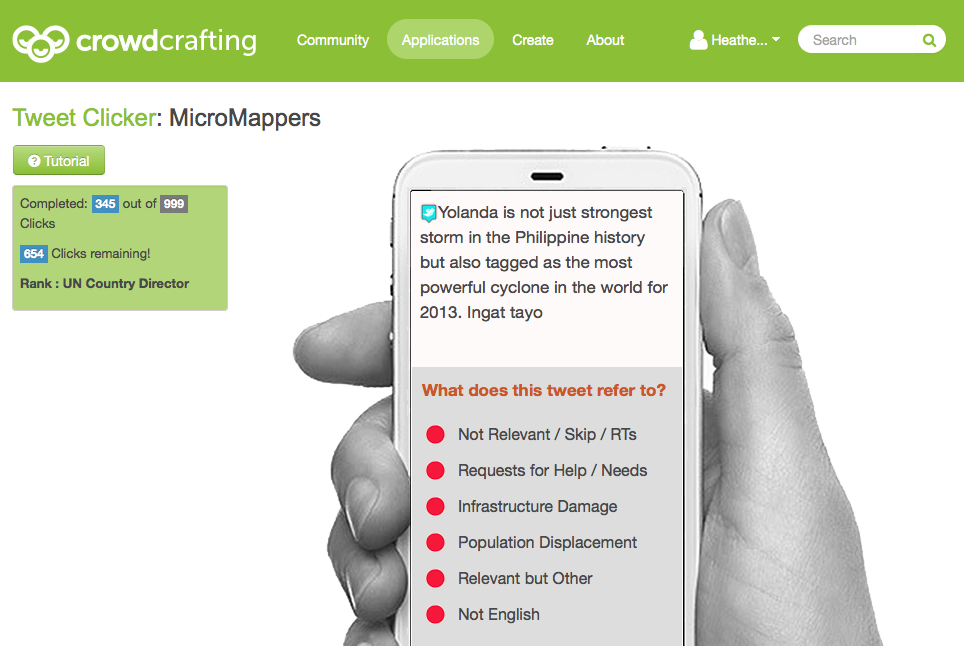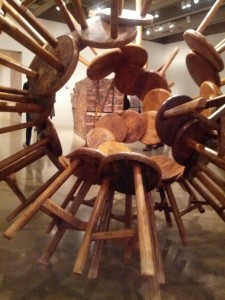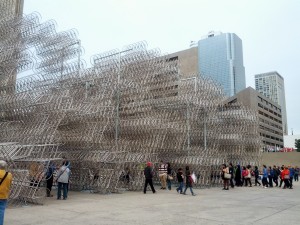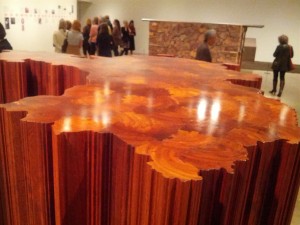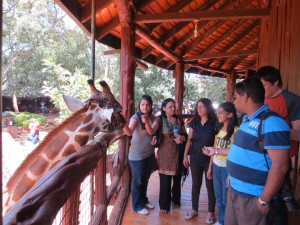What do Buenos Aires, Edmonton, Porto, Prata, Osaka, Bandung, New Haven and Cotonou have in common? Well, there are incredible community organizers leading Open Data Day Events in their cities joining a total of 109 events globally.
As you may know, I am a bit of an addict when it comes to global events. Borders dissolve and mission rises. All of us join to make our communities better. I am not a ‘coder’. As a community organizer, I am throwing my brain at helping people connect and share stories. If I can successfully contribute, so can you. I hope you’ll join your city.
The team at Open Knowledge Foundation has been supporting our local groups community and the wider network. This means we are managing the website, wiki and hosting a few online events. I’m specifically curating the wiki alongside our incredible helpful community volunteer, Mita Williams.
Dave Eaves, one of the founders of Open Data Day, and I have hosted two Google Hangouts to connect the community:
Round 1 – What is Open Data Day
This 30 minute hangout explained the roots of Open Data Day (ODD14), Dave explained the core goals and we talked about types of events along with some event planning tips.
Round 2 – What are you Doing Open Data Day
This 45 minute hangout featured participants from around the world sharing their stories about what they will be doing Open Data Day. We grappled with some tech signup issues, but folks managed to get connected both in writing and in person.
Here’s one fantastic example:
Ome Mejabi: “We are lighting up Ilorin, Nigeria at the University of Ilorin campus with Unilorin ODDC Data Hack Event coming up on February 22nd, 2014 to coincide with the 2014 international Open Data Day. Details for the event.
ODDC is acronym for “Researching the emerging impact of Open Data in Developing Countries”, a World Wide Web Foundation/IDRC funded research project.”
What am I doing Open Data Day?
My Open Data Day is actually a 3 – day weekend.
The Toronto Open Data team has invited me to join their Problem Curation Roundtable. I’d provide some input for challenge leaders.
Then, I go to Washington, DC to join the School of Data Nigeria Extractives team. We will look into contracts, datasets and, hopefully, find data on which Canadian companies are active in Nigeria.
I wish I could be in 3 places at one and join Canada’s first Open Data Summit hosted by our friends in BC.
The Canadian Open Data Recognition Awards
These awards are to recognize outstanding work of an individual or an organization in the area of open data in Canada.
Three categories have been identified. They are:
Open Data Innovation Award
To recognize innovation in open data, whether with respect to policy, implementation, or use of open data.
Open Data Community Award
To recognize a significant contribution to strengthening the open data community, whether through outreach, education, commentary or otherwise.
Open Data Social Justice Award
To recognize the use of open data to increase social justice and community wellness.
We are accepting nominations until Midnight Feb 13, 2014 Pacific Time.
Please submit your nominations for the 2014 Canadian Open Data Recognition Awards using this form.
